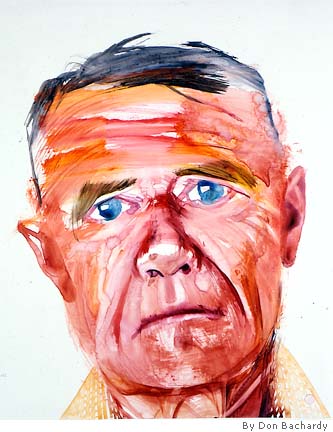
The new California gay marriage law has taken effect, and thousands of couples are clamoring to exercise that right at secular offices and religious institutions throughout the state. I say, hooray for those who seek to bless their relationship with this name, some of whom have been kept waiting for too many years for the rest of society to catch up with them. And a tentative hooray for California, depending on the result of that absurd petition -- it is already on the November ballot -- seeking to "define marriage" as solely "between one man and one woman." What are these people so afraid of? Is marriage, in their eyes, so vulnerable an institution that it needs their intolerance to "defend" it?
News reports covering the reversal of the same-sex marriage ban have tended to see the debate, quite rightly, as one about civil rights. Lost in that debate, however, is the extraordinarily personal and private nature of marriage itself. I realize that by no means all gay couples would choose to take advantage of their newly-established right, but it's a useful moment to remind ourselves that the desire on the part of gay couples to be married is not simply about fairness, but about being seen and recognized as people like all others, who share the capacity to love deeply and experience profound intimacy and unquestioned commitment.
These thoughts were inspired in part by an email, received Monday, with a link to the New York Times review of a new movie, Chris and Don: A Love Story, about the British-born writer Christopher Isherwood and his life-long companion, the artist Don Bachardy. It was sent to me with a friendly reminder of Bachardy's gratitude for a catalogue essay I wrote a number of years ago for an exhibition of his "Portraits of Christopher" at California State University, Fullerton -- an essay that started out with the words, "I learned to write from Christopher Isherwood." I was much moved by the pictures in the exhibition, in particular by the extraordinary depth of love they manifested between one man and another. Here's a part of what I wrote:
The portraits of Isherwood are exceptional [...] in that the relationship is exceptionally close. From them, we can only guess at his youth, since they cover only the latter half of his life. But we see his maturity, the decline of his body, his battle with illness and, finally, with death. Bachardy records it all for us with that camera-curious eye, sparing us nothing. What could be more honest, more touchingly vulnerable, than that 1985 picture of Christopher as a naked old man, reclining back away from us, his body exposed, with nothing left to hide? Or that haunting, unforgettable series of pictures of Christopher after his death, no more now than a useless, empty body, still strangely beautiful but ineffably sad, the abandoned remnant of a human life. In Bachardy's final tribute, we sense our own futile desire to cling despairingly to our beloved, and our own lives.

Who knows whether Christopher and Don would have wanted to choose marriage, if it had been an option for them during Christopher's lifetime? It's not even my business to know. But I'm glad that others in their situation now have that choice.
In any event, I'm personally grateful to all those who joined me in celebrating the remarkable moment of 5:01 PM on Monday, June 16, in California -- and trust that they will vote, if and when it comes to that, AGAINST any attempt to reverse this long-overdue and simply humane law.
